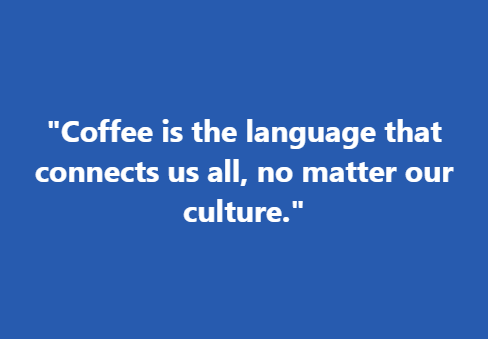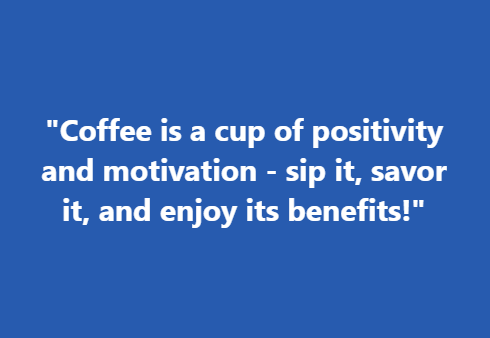Experience the aroma of awakening in an adventure through the world of coffee. Discover a journey that will satisfy any coffee lover!
French Press Calculator
Perfect coffee-to-water ratios for your brew
☕ Brewing Instructions
Measure & Grind
Weigh out 38g of coffee beans and grind to a coarse consistency (like sea salt).
Heat Water
Bring 500ml of water to 93°C (200°F). Let boiling water rest for 30 seconds.
Add Coffee
Add your ground coffee to the French press. Shake gently to level the grounds.
Pour & Stir
Pour all the hot water over the grounds. Stir gently with a spoon to ensure all coffee is saturated.
Steep
Place the lid on with the plunger pulled up. Let it steep for 4 minutes.
Press & Serve
Press the plunger down slowly and steadily. Pour immediately to avoid over-extraction.
Table of Contents
The smell of freshly brewed coffee is like a warm embrace, providing comfort and joy to those who partake in its deliciousness.
For many, that aroma marks the start of a new day, as we open our eyes and make our way to the kitchen for a cup of this beloved beverage.
The journey of a coffee lover is one filled with adventure and discovery – from exploring exotic origins to learning about different brewing methods.
Coffee’s Origins
Coffee’s origins are as old as time. It is believed that coffee originated in Africa, and the first evidence of its use dates back to the 9th century.
Coffee beans were discovered by an Ethiopian goatherd who noticed his goats eating the wild berries and acting energized after consuming them.
The beans were then roasted and brewed with hot water, resulting in a beverage that was invigorating and refreshing.
Word quickly spread about this new caffeinated drink, leading to its popularity throughout the world.
In the 16th century, coffee made its way from Ethiopia to Yemen where it was cultivated on a large scale for the first time.
From there, it spread to other Arab countries such as Egypt and Turkey before arriving in Europe via Venice in 1615. Once here,
Europeans began perfecting new brewing methods such as the French press and espresso machines which further increased its popularity across continents.
By the 19th century, coffee had become a staple beverage around the world with many cultures developing their own unique ways of preparing it.
Coffee Lover: Brewing Techniques
All-in-all, brewing techniques are essential for making a cup of coffee perfect. One of the most popular brewing techniques is drip brewing.
This method involves using a filter to strain out the grounds once hot water has been poured over them.
The biggest benefits of this method are that it’s easy and fast, as well as being more consistent than other methods. Another popular way to brew coffee is with an espresso machine.
This method uses pressurized hot water to extract a concentrated shot of coffee with a thick crema layer on top. It’s best suited for making espressos or other drinks made with espressos, like cappuccinos or lattes.
Lastly, French press brewing utilizes an infusion process where coarsely ground beans are steeped in hot water before being filtered out manually when ready to be served.
This technique provides a full-bodied cup due to its longer steeping time and produces fewer bitter flavors because all the grinds stay in the pot until serving time.
Whatever technique you choose, it’s important that you get familiar with it so that you can achieve your desired results every time!

Roasting Profiles
Roasting profiles are one of the most important factors in determining the flavor of a cup of coffee. Different roasts will create different flavors, and each profile can be tailored to bring out specific notes that may be desired.
The lightest roast is typically a “cinnamon” roast, which has an earthier flavor with hints of spices like cinnamon.
A medium roast is often referred to as a “city” roast and has more balanced acidity with a more pronounced texture and taste. Lastly, dark roasts are known for their intense smoky flavors and rich body.
Depending on the desired flavor profile, it’s important to select the right type of beans and adjust settings such as temperature, time, moisture level, and airflow accordingly. Additionally, some coffees may require multiple stages or rounds of roasting for optimal flavor.
Tasting Notes
Tasting notes are an essential part of the coffee experience, allowing you to appreciate the flavor profiles, aromas, and nuances in each cup.
By understanding what’s going on in your cup you can identify characteristics that make one coffee special over another.
Coffee tasting is like wine tasting; it takes practice and skill to be able to accurately articulate the flavors you taste.
When tasting coffee, start by smelling the dry grounds before brewing. A good quality ground should have a sweet aroma and should smell fresh. After brewing, take small sips and swirl them around your mouth for a few seconds so that all parts of your tongue can detect different flavors.
Pay close attention to all of the distinct flavors present – earthiness, sweetness, bitterness, or acidity – as well as any aromatics such as floral scents or fruitiness.
Afterward, take note of how long certain flavors linger on your palate afterward – this is known as finish or aftertaste.
Once you get familiar with these processes you will be able to distinguish subtle differences between coffees from different origins and roasts which will help guide your choice when selecting beans for purchase or experimentation in home-brewed coffee recipes!
Coffee Culture

Coffee culture has become increasingly popular in recent years, as more and more coffee enthusiasts have become enamored with the unique flavors, aromas, and brewing techniques available.
From pour-over to French press to espresso, there is an array of options for any connoisseur to explore.
The complexities of the beverage can be explored further through cupping sessions, which allow tasters to identify various nuances within the same blend.
Additionally, as coffee shops continue to open up in cities around the world, they create a space where people can come together over their shared love of coffee.
By fostering a sense of community among like-minded individuals these establishments bring people together in an environment that celebrates all things related to java.
Lastly, by educating consumers on origin stories, roasting practices, and different grinds; coffee purveyors are able to expand the knowledge base for newcomers and experienced drinkers alike.
Coffee’s Benefits

Coffee consumption is associated with numerous health benefits, primarily due to its high antioxidant content.
For instance, studies show that drinking coffee may reduce the risk of developing type 2 diabetes, as well as improve cognitive function and reduce the risk of developing certain types of cancer.
Furthermore, regular consumption of coffee has been linked to a reduced risk of depression due to its positive effect on serotonin levels in the brain.
Finally, drinking coffee can benefit those looking for weight loss by boosting metabolism and increasing fat burning.
Overall, research shows that moderate amounts of coffee consumption offer many potential benefits.
It’s important to note however that it’s best to drink caffeinated beverages in moderation; too much caffeine can have adverse effects on sleep cycles and increase anxiety levels for some individuals.
Still, if consumed in moderation there are many potential health benefits associated with enjoying a cup or two every day!

Conclusion: Awakening to Coffee
Awakening to coffee has been a journey that has provided me with an appreciation for its depth.
Not only have I learned the nuances of tasting and appreciating each cup, but I’ve also come to understand the unique processes involved in producing a quality roast.
From the region and variety of beans used to the roasting techniques employed, each cup of coffee becomes an exploration of flavor.
As I have explored this world, it has become apparent why so many people are passionate about their morning brew.
Coffee provides an awakening of both body and soul. It can be enjoyed in a variety of forms, from light-roasted espresso shots to dark-roasted French press pots.
With each sip, it is possible to experience new flavors, invigorating aromas, and stimulating textures – all designed to bring us into the present moment.
The love affair between consumer and producer goes beyond what can be expressed with words; it is truly something that must be experienced firsthand.
At its core, coffee is more than just a beverage; it’s a ritualistic experience shared by millions around the world every day – one that promotes connection and community over competition or comparison.
Ultimately, my journey awakened me not only to great taste but also an appreciation for something greater: our shared human presence on this earth which we should savor as if it were our last cup of joe!